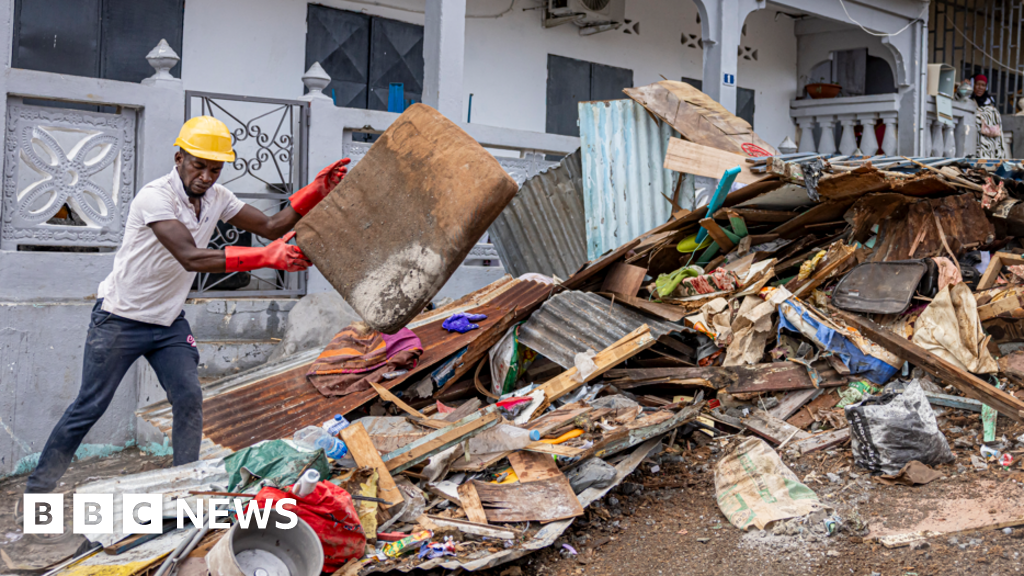The majority of the state ballot measures meant to protect abortion access this year passed, and most of them were citizen-led initiatives, meaning organizers petitioned to get the measures on the ballot. Those types of measures give everyday Americans agency to fight for abortion rights now that the issue has been left to the states. But not all states allow citizens to put forward statewide ballot initiatives, including some with the strictest abortion laws in the country, leaving reproductive-rights advocates there with little recourse.
“It essentially leaves us powerless when we're talking about adding initiatives that people actually care about on the ballot,” says Chasity Wilson, the executive director of the Louisiana Abortion Fund.
Since the U.S. Supreme Court’s 2022 decision in Dobbs v. Jackson Women’s Health Organization that overturned Roe v. Wade, advocates have turned to the citizen-led initiative process to try and enshrine the right to abortion in state constitutions. Polling has found that the majority of Americans say that abortion should be legal in all or most situations, and when abortion has been on the ballot, it’s won most of the time.
Ballot measures can lead to tangible change—this year, Missouri made history as the first state since the Dobbs decision to pass a citizen-led ballot measure that is expected to overturn its near-total abortion ban. But only about half of all states allow citizens to propose statewide ballot measures; in other states, the legislatures would have to add measures to the ballot. And some of the states that don’t allow for this process are also states that have banned abortion in nearly all situations, including Louisiana, Alabama, and Texas.
“I think this is something that was frustrating throughout the campaign when the conversation of abortion would come up and [Donald] Trump in particular would talk about how we’re just sending it back to the states and giving the voters and the states the opportunity [to decide this],” says Michelle Erenberg, the executive director of the reproductive-rights organization Lift Louisiana. “It really ignored the fact that there are many states in which citizen-led ballot initiatives aren’t possible.”
Read More: Why Abortion Rights Won in Three States That Voted for Trump
Citizens elect their representatives, so in red states, the legislatures’ abortion restrictions are still a reflection of state-by-state policymaking in a post-Roe landscape. But reproductive-rights advocates in those states say that restrictions don’t reflect how many voters feel about abortion. And seeing seven abortion-rights measures pass in the 2024 election was also a dismaying reminder to many advocates that they can’t try to do the same.
In Louisiana, a Democratic representative proposed putting a reproductive-rights measure on the 2024 ballot, but the House Committee on Civil Law and Procedure shut that effort down in March. “We’re going to keep trying because we know that this is something that voters in Louisiana do support and do want,” Erenberg says. “The committee makeup is strongly opposed to abortion and so it’s going to take a lot of effort to either change the makeup of the committee or change the hearts and minds of the members of the committee.”
In 2020, two years before the Dobbs decision, Louisiana voters passed a legislatively-referred constitutional amendment to affirm that nothing in the state constitution guarantees the right to abortion, with about 62% of voters backing the measure. But support for abortion may have shifted since then. Lift Louisiana, in collaboration with other organizations, commissioned a poll, which found that of 1,000 likely Louisiana voters surveyed in April 2023, more of them—42%—would “strongly support” a constitutional amendment that establishes a right to abortion than would “strongly oppose” it—30%.
Read More: Emergency Doctor Worries Louisiana’s New Classification for Abortion Meds Could Be Life-Threatening
Without a ballot measure, Wilson says the burden falls on advocates and local governments to help people access the care they need. The Louisiana Abortion Fund, for instance, provides direct aid to people in the Gulf South who are trying to obtain abortions in states where it’s legal, covering the costs of travel and connecting them to other resources they may need. The group also provides funding through pledges sent to clinics located in states where abortion is permitted. Lift Louisiana also provides informational resources, as well as pushes for reproductive-rights legislation and offers legal advocacy.
Jenice Fountain—the executive director of Yellowhammer Fund, a reproductive justice organization that serves Alabama, Mississippi, and the Deep South—says that not having the ability to put a measure on the Alabama ballot restricts their ability to try to protect reproductive rights. “Honestly, the best we can do as advocates in the state is often to reduce some of the harm,” Fountain says. The Yellowhammer Fund and other reproductive rights advocates filed lawsuits against Alabama Attorney General Steve Marshall in 2023, arguing that he indicated that groups that help people travel out of state to get an abortion could be charged with conspiracy. The Yellowhammer Fund used to offer funds to people seeking abortions, but stopped because of Marshall’s remarks.
Now, the Yellowhammer Fund has been distributing emergency contraceptives and other reproductive health items, like condoms and pregnancy tests. “We’re just having to take such small steps,” Fountain says. “I think folks are wanting this big, sweeping motion that restores access… I just don’t think there’s going to be any big sweeping motions; I think it’s just going to have to be very strategic.”
Raven E. Freeborn, the executive director of the Texas-based reproductive-rights organization Avow, says they were encouraged to see other states passing ballot measures this year, adding that it could allow Texans traveling out of the state more opportunities to access care. But getting a measure on the ballot is not something that Avow is focusing on. “It is a high hope,” Freeborn says. “However, in the reality of what Texans are facing at this time, the odds are stacked against us there, so we’re hopeful for different strategies, and that’s what we’re working towards.”
Freeborn emphasizes that there are still a lot of other paths for advocates to protect reproductive rights in Texas. Freeborn points to Amarillo, Texas, where voters rejected a local ballot initiative that would have increased abortion restrictions by essentially making it illegal to use local roads to travel out of the state to get an abortion. Avow canvasses in the state to raise awareness about abortion, and also works with lawmakers to push for legislation to protect reproductive healthcare.
Renee Bracey Sherman, an abortion activist and co-author of Liberating Abortion, says that not allowing these states to put forward citizen-led initiatives prevents people’s voices from being heard. “The organizers in those states are so amazing, and I hold so much love and hope for all of them,” Bracey Sherman says. “I do not hold that same love and hope for the politicians in those states because they follow political winds … they don’t necessarily do right by the people.”

 1 month ago
9
1 month ago
9










 English (US) ·
English (US) ·